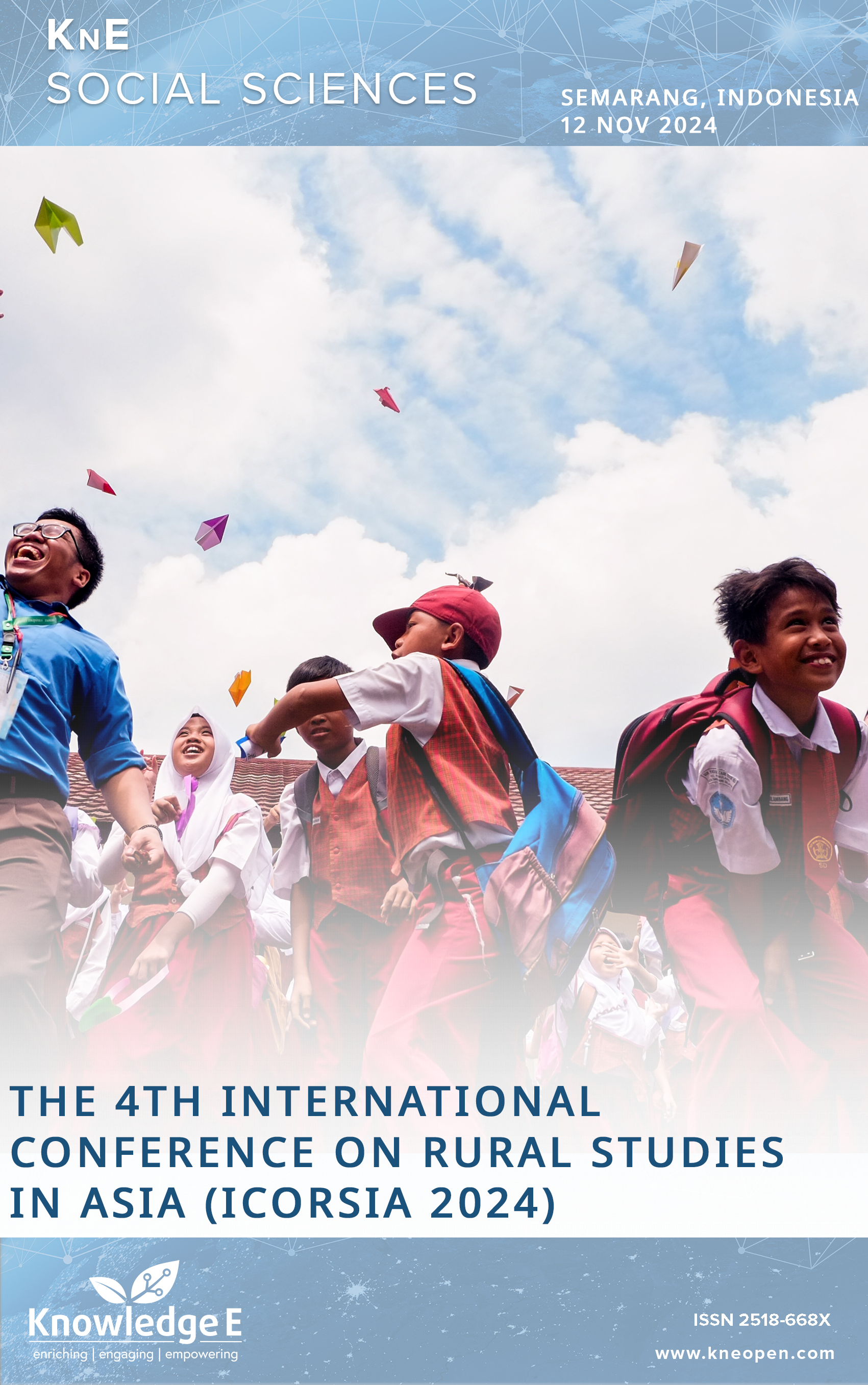Social Policy for Decent Housing Assistance for Low-Income Households in Gorontalo City
DOI:
https://doi.org/10.18502/kss.v10i10.18649Keywords:
livable housing, policy, GorontaloAbstract
The Livable Housing Program, also known as Mahyani, is a government initiative designed to assist low-income households (referred to as RTM) who own properties that do not fulfil the required standards for habitation. The primary objective of the Livable Housing Program is to implement a housing framework that enhances the quality of living for the community, hence fostering improved comfort and well-being. Furthermore, the provision of habitable homes enables the community to contemplate the expansion of their entrepreneurial pursuits. The primary aims of this study are to gain insights into the process of formulating the Livable Housing Program by the local government of Gorontalo City, Indonesia, assess the level of community involvement in the program’s development and implementation, and examine the response of the community (as beneficiaries) towards the Livable Housing Program initiated by the Gorontalo City government. This study utilizes a qualitative technique, specifically employing a policy analysis approach, and adopts a descriptive strategy to investigate the research question. The data gathering methodologies employed in this study encompass observation, interviews, and document analysis specifically pertaining to the program. The research findings suggest that the execution of the Mahyani home building program is currently facing operational challenges. These include the significant delays encountered in the distribution of building supplies and the situation where some beneficiaries are still awaiting assistance, albeit with hopeful expectations of receiving it in due course. The replies from the beneficiaries indicate that they perceive the advantages of the Livable Housing Program implemented by the local government. With the provision of housing support, individuals are now able to inhabit their residences, notwithstanding any discrepancies between the building and their original expectations.
References
Ajibola GM, Sanmi A. Housing rehabilitation strategy as enabling approach for development of rural housing poverty in Nigeria. World J Soc Sci Humanit. 2015;1(1):11–17.
Abdullahi BC, Abd Aziz WN. The role of private sector participation in achieving anticipated outcomes for low-income group: A comparative analysis of housing sector between Malaysia and Nigeria. Afr J Bus Manage. 2011;5(16):6859–6890.
Prayogi A. Implementasi Kebijakan Program Bedah Rumah (Studi Penelitian tentang Bedah Rumah oleh Badan Pemberdayaan Masyarakat di Desa Kedawung Kecamatan Kuripan Kabupaten Probolinggo). Tesis. Universitas Muhammadiyah Malang; 2011.
Anderson JE. Public Policy Making. Boston: Houghton Mifflin; 1990.
Badan Pusat Statistik dan Departemen Sosial RI. 2002. Penduduk Fakir Miskin di Indoensia, Jakarta: BPS dan Depsos
Haerana. Implementasi Kebijakan Rehabilitasi Pengguna Narkoba di Kota Makassar. Jurnal Administrasi Publik. 2016;6(2):1–10.
Jo Santoso, et.al. Sistem Perumahan Sosial di Indonesia. Jakarta: Pusat Studi Perkotaan UI dan Ikatan Ahli Perencanaan; 2002.
Karniawati N, Rahmadani R. Analisis kebijakan penerapan e-government melalui sistem informasi manajemen kepegawaian (Simpeg) (Suatu studi pada biro kepegawaian sekretariat daerah provinsi jawa barat). Majalah Ilmiah UNIKOM. 2011;7(2):233–248.
Ismowati M, Subhan A. Implementasi Program Pemberdayaan Sosial Kegiatan Rehabilitasi Sosial Rumah Tidak Layak Huni (Rtlh) Bagi Masyarakat Miskin Di Kabupaten Pandeglang. Jurnal Transparansi. 2018;1(2):194-205.
Midiansyah. Kajian Evaluasi Pemanfaatan Dana Bantuan Hibah dan Bantuan Sosial Kota Tarakan. Universitas Mulawarman;2011.
Nurhadi. Mengembangkan Jaminan Sosial, Mengentaskan Kemiskinan. Yogyakarta: Media Wacana; 2007.
Rizki ahmadsubagjadanniakarniawati.Implementasikebijakanprogramrehabilitasi rumah tidak layak huni di Kota Cimahi; 2017.
Yuda TK. Governing alternative resources for social policy: A welfare political challenges on mixed-welfare arrangements. Jurnal Ilmu Sosial dan Ilmu Politik. 2017;21(2):87–101.
Published
How to Cite
Issue
Section
License
Copyright (c) 2025 KnE Social Sciences

This work is licensed under a Creative Commons Attribution 4.0 International License.

